Marists on the Thailand-Burma border
Why are Marists on the Thailand-Burma border?
I’m a Marist priest, born and raised in Wanganui, ordained a Priest in 2000, and now I’m working in the Marist Mission in Ranong.
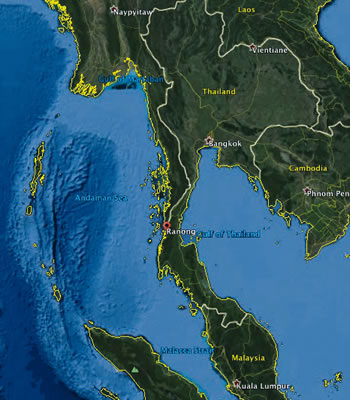 I’ve been in the mission here for 3 years now. Although there are many challenges and difficulties, I feel a deep joy being here among the most abandoned in Asia.
I’ve been in the mission here for 3 years now. Although there are many challenges and difficulties, I feel a deep joy being here among the most abandoned in Asia.
Perhaps it is the fact that the truly abandoned have no-one to support them which gives our work and mission here a daily sense of feeling so useful and doing so much good. We can see it in the face of each child and health patient we serve.
Ranong is a fishing village and border crossing town on the Thailand Burma border and it’s filled with Burmese migrants fleeing poverty and oppression in Burma, now called Myanmar.
My arrival on the Thai Burma border I can trace back to my Mum. She would often visit the sick or people who had just come out of hospital. She was wonderful at baking a sultana cake and heading out of the door to visit someone.
I can remember seeing the joy that people had when my Mum came to visit them. I saw the joy Mum had in loving and serving those in real need.
It made a big impression on me as the years went on. I regularly went with Mum. I don’t know if she planned it or not, but when I reflect back on my vocation to be a Priest and Religious, I know there was a point in my young life when I knew deep down that it is possible to be very happy living a life of love and service for others. One gets filled with love and joy and wants to bring that joy to others.
I don’t think I had all the words when I was young, but I now realise a clear difference between ‘career’ and ‘calling.’ In a subtle way career can become about a concern for what will bring me ‘comfort’ in the future (money and possessions and stuff), rather than compassion and caring. I felt the call toward compassion more than the call to comfort.
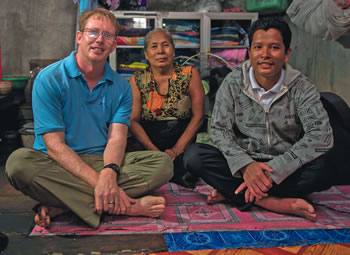
Fr Frank Bird sm visits the home of one of his students in a charcoal factory. At 4 years of age this student was picking up rubbish on the streets of Burma and did not go to school. Because of the Marist Asia Foundation he has learnt English and his recent graduation from the University Online Diploma Programme has transformed his life and the life of his family.
Yet when I turned 40 I found myself getting more uncomfortable with being so comfortable. I felt drawn to volunteer for the missions and ended up being called to serve among the Burmese migrants. I’ve never felt more useful!
The Marist Mission in Ranong came about because in 2005 the Marist team was expelled from Burma and ended up in Thailand. The early missionaries, instead of going back to the Philippines, saw the great need that Burmese migrants have when they come to Thailand.
Today there are still very sad things happening on the Thailand Burma border.
Burma has suffered the longest running civil war in history between ethnic groups and the Burmese military. This violence and military oppression has caused great poverty and causes many to just leave their families, their home and land and become refugees or migrants in Thailand. The latest semi-democratic elections are a sign of hope but it will be a long road to recovery after 60 years of military rule.
On the Thailand Burma border there are nine refugee camps with over 160,000 refugees fleeing military persecution and poverty and seeking safety for their children.
There are over 450,000 Internally Displaced People (IDPs) inside the Burma border but being pushed around by Burmese military, pushed off their homes and land and farms, vulnerable to the weather, lacking shelter and education and health opportunities.
Stuck in refugee camps, many lose hope. Others arrive and then struggle in Thailand seeking work as migrants. They realise immediately that the host government does not really want to welcome or support them. It wishes rather to use them as cheap labour.
We are in the southern border crossing town called Ranong. Women are sold into the sex industry, men are sold into the fishing industry. There are fish factories, charcoal factories, construction or low paid service work -- the typical ‘3 D’ jobs of migrants: Dirty, Difficult and Dangerous. Many poor Burmese migrant families are daily living in desperation.
It is hard for us to understand or appreciate just what the experience is like from the comfort of our armchairs in the developed world.Imagine working for up to 10 hours a day, standing up, in a smelly fish factory cutting the heads off the fish; or packing 100 bags of charcoal in a dirty and dusty charcoal factory; or in the 30-40 degree heat on a building site with very little concern for safety and no modern machinery. And for all of this work you may be lucky to receive 10-12 NZ dollars.
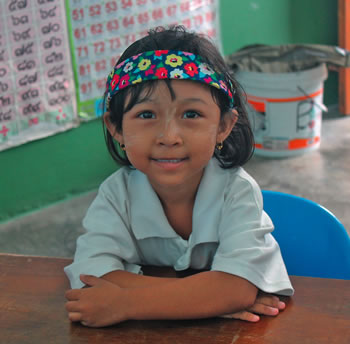
Only 20% of Burmese migrant children begin school in Ranong. A pre-school programme gives both children and parents a positive experience so they want to start school.
After you feed your family you have a few dollars left which needs to go toward renting your small concrete room house. This house is really a concrete box the size of your kitchen. You have only a mat and a small cupboard with family clothes in it.
Migrants are vulnerable if they don’t have the correct documents to be legal workers.
Only about 50% of migrants have the right documents because they cost so much money. Sometimes your boss refuses to give the documents to you in order to keep you vulnerable and enslaved to him, unable to leave the factory or shop.
Parents and children can get caught and ransomed back to the family for a large fee by police. Migrants are kept poor, vulnerable, and stuck in the 3 D jobs.
Sometimes I’m traumatised myself visiting homes and seeing rotten floor boards, no roof, no food, children in a storm rescuing their blankets and piling all the family possessions high and sleeping on top holding onto the bucket of rice – their most prized food source.
I’ve realised I take so much for granted. A healthy home. Electricity. A fridge with food in it. Running water. Good health. A toilet. Footpaths. My education and the gift to read and write. Freedom to walk around without fear of being caught.
When I came home recently for a holiday, I noticed everyone complaining about so many things. From where I have been they are such small problems compared to the migrant families and children where I am.
Having been here for 3 years I have made a decision not to complain again. When we stop and think about things we realise we are so, so lucky. I think the experience of being a missionary in a difficult place has made me more grateful and thankful for absolutely everything in my life -- my family, safety, health, faith, education, opportunities. Not many migrants have all of these.
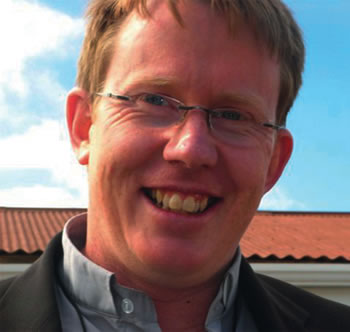
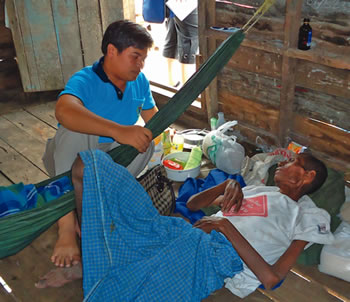

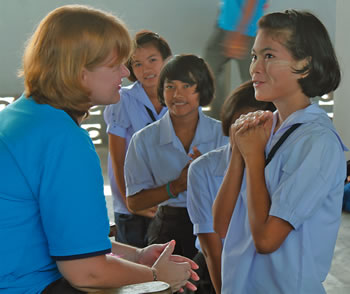
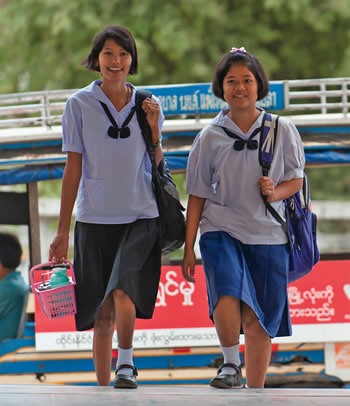
 Entries(RSS)
Entries(RSS)